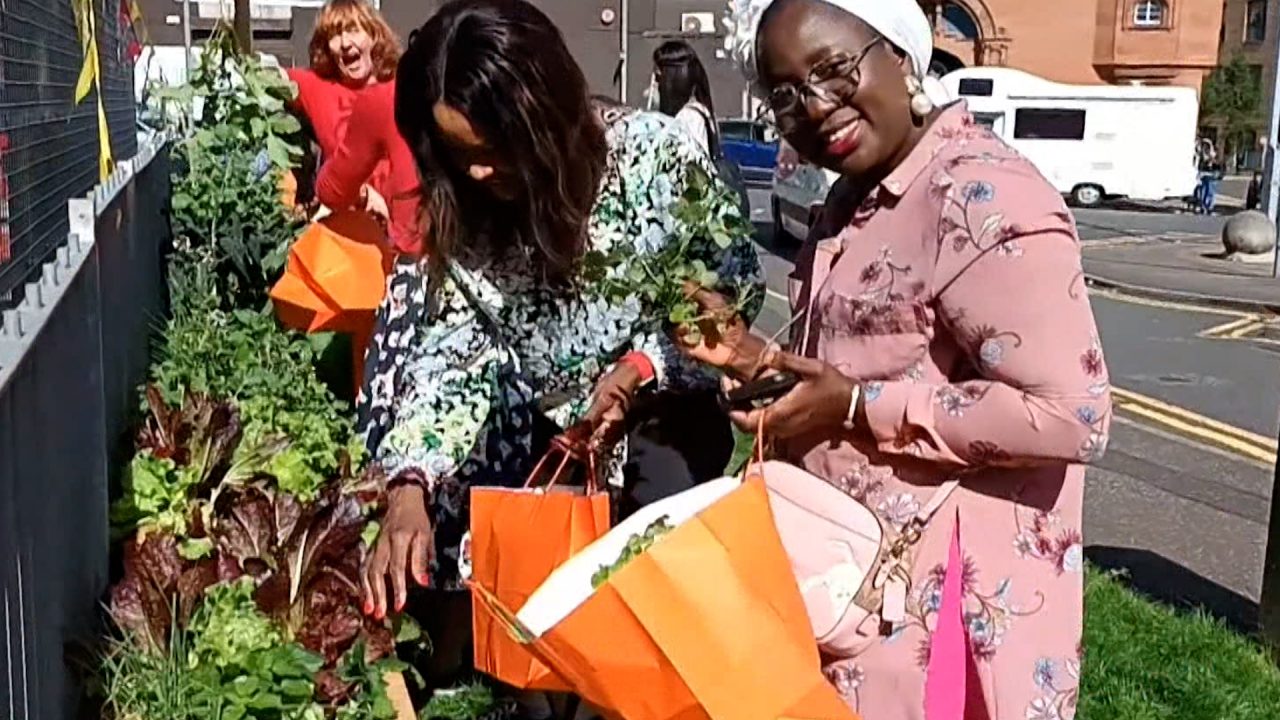It’s 12.30pm on a Thursday in Glasgow and a group of women from different countries and backgrounds arrive at The Pyramid, a community centre in Anderston.
They come to attend women’s hour. At this weekly gathering, they learn more about their rights while listening to speakers from various fields such as education, politics and human rights.
They listen to politicians such as MP Alison Thewlis, MSP Kaukab Stewart and councillor Christy Mearns.
Female members of Police Scotland come to explain how to report crimes.
Members from Scottish Refugee Council and other local organisations also speak about the support they offer.
Women from different backgrounds are coming to share their experiences and inspiring changes.
Women Integration Network members are learning new skills and, most importantly, building friendships.
Understanding the immigration system, especially as an asylum seeker, is a complex and painful experience. On the other hand, it can make you resilient and prepared to help others facing the same process.
Olivia Ndoti, the founder of Women Integration Network, embraces the mission of helping other women arriving in Glasgow feel at home. She is from Zambia and before securing her leave to remain in the UK, she went through the cruel experience of being destitute.
Inhuman policies such as “no recourse to public funds” prevents access to statutory housing, financial support, right to work and further education. In this condition, women are more vulnerable to abuse. “It’s mental torture every day,” says Olivia.
Today, Olivia uses her experience to raise awareness of immigration policies that oppress migrant communities and supports migrant women in standing up for their rights.
“Any woman can be in our group,” she says. “We all go through related issues; it could be poverty, housing, unemployment, education and all those things I come across that Scottish people also go through. I thought that if many women’s voices come together, we will be able to challenge it.”
Mariama Sillah, a health practice student from the Gambia and a member of WIN, adds: “Women Integration Network is not only a group of women that meet and discuss issues, WIN is the voice of powerful women from different ethnicities and races. It’s a group that comes together to face the challenges and barriers in their everyday lives.”
Emerencia Leke, from Cameron, arrived in Scotland due to the ongoing conflict in her country. Now she is in the asylum process, a journey accompanied by frustration and isolation. While waiting for her claim to be approved, she is attending meetings and other activities organised by WIN.
“I feel safe and supported,” she says. “Women Integration Network is a welcoming place, a source of strength and support. We support each other as we share our lived experiences.”.
During the summer, with a grant from BEMIS, WIN launched the project Global Seeds, culminating with a cultural event as part of the Dandelion Festival, a collective day of harvesting across Scotland.
This project encourages women to learn gardening skills, grow food and nurture friendships.
When women come together and care for each other, incredible things are possible, even within a hostile environment.
Juliana da Penha is a freelance journalist and founder of Migrant Women Press, a platform created to amplify the voices of migrant women in the media. She holds a BSc in cultural studies and communication and MSc in human rights and international politics.
Follow STV News on WhatsApp
Scan the QR code on your mobile device for all the latest news from around the country





























